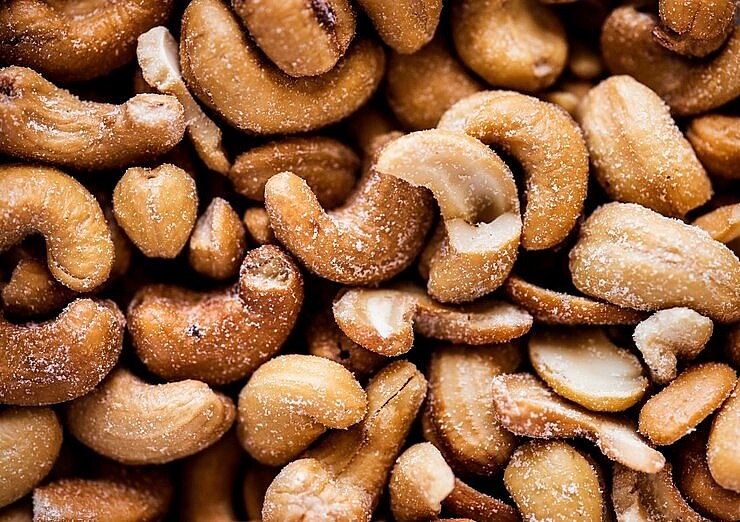Plant quarantine rules put stranglehold on process
Since March, the Ministry of Agriculture and Rural Development (MARD) has enforced quarantine of all imported plant shipments and those for re-export processing.
 |
| Plant quarantine rules put stranglehold on process, illustration photo/ Source: freepik.com |
Document No.06/VBHN-BNNPTNT stipulates that all exported and imported plant shipments have to be checked and quarantined until they meet standards, replacing the previous random checking system.
Among vegetables and fruits on the list of objects subject to quarantine, Vietnamese cashews capture the largest market share around the world.
According to the General Department of Vietnam Customs, over the first eight months of 2023, Vietnam’s cashew exports reached nearly 395,600 tonnes worth $2.28 billion. This is up 15.5 per cent in volume and 11.3 per cent in value compared to the same period last year.
But in the same period, Vietnam’s average cashew export price came down by 3.6 per cent on-year, totalling $5,760 per tonne.
At a meeting with the MARD last week, Vu Thai Son, CEO of Long Son JSC and chairman of the Binh Phuoc Cashew Association, said cashew exporters now face extreme woes due to low selling prices and high costs of raw material and production.
Since Document 06 was issued, the quarantine agency has sent officers to inspect all cashew nut shipments registered for export at factories in the southern province of Binh Phuoc, adding more barriers to businesses.
“With the maximum quarantine time, weak enforcement, and remote cashew factories, businesses have to spend far too much time waiting, and they cannot fulfill orders or manage capital flows,” Son claimed.
During the production process, cashew nuts are cooked and pasteurised before being vacuum packaged in oxygen-free bags for a storage period of 24 months.
Thus, the time to inspect the shipment is right before export, at the same time as the plant quarantine agency also takes samples and checks for termites and insects of export shipments at factories.
“There are currently two units carrying out inspections with the same criteria at the same time, and with the same purpose for an export shipment, while the independent inspection unit is performing a much more thorough inspection process with a higher sampling rate,” Son added.
Furthermore, because the plant protection agency’s quarantine staff numbers are low, they take a lot of time to get samples of every exported cashew shipment, Son explained. Every day, about 30 businesses in various districts in Binh Phuoc alone register for plant quarantine at a quantity of about 60-70 containers per day.
In the opposite direction, the cashew industry imports more than 80,000 containers every year. The cost of inspection, getting samples, and storage totals around $5-6 million on an annual basis.
At last week’s meeting with cashew producers, Le Son Ha from the MARD’s Plant Protection Department (PPD) said that raw cashews imported from Africa have a number of pest issues that need to be controlled, so mandatory quarantine regulations must be implemented immediately at seaports, without imported goods moving deeper inland first.
“As for processed cashew nuts, the risk of pest infection is enough low and almost non-existent, so the current quarantine process is unnecessary. We are proactively proposing to the MARD to eliminate the quarantine stage.”
Explaining the reason for two inspections on exporting shipments, Nguyen Thi Thu Huong, deputy director general at the PPD, said that cashew products are subject to plant quarantine to detect harmful organisms.
“Quality inspection is an entirely different work to assess conformity and whether the quality of exported cashew nuts can meet the buyer’s conditions or not. They are thoroughly different as one is mandatory, and the other is voluntary,” Huong said.
Listening to the comments of businesses to combine quality checking and plant quarantine to reduce costs and time, she said, “The department has held a meeting with cashew associations to find appropriate solutions to ensure both mandatory quarantine criteria for export shipments and to save time for businesses. However, at present, businesses still have to comply with meeting quarantine requirements.”
 | Cashews a hard nut to crack Industry insiders recommend tightening cashew exports regulations to foster global market prestige. |
What the stars mean:
★ Poor ★ ★ Promising ★★★ Good ★★★★ Very good ★★★★★ Exceptional
Related Contents
Latest News
More News
- State corporations poised to drive 2026 growth (February 03, 2026 | 13:58)
- Why high-tech talent will define Vietnam’s growth (February 02, 2026 | 10:47)
- FMCG resilience amid varying storms (February 02, 2026 | 10:00)
- Customs reforms strengthen business confidence, support trade growth (February 01, 2026 | 08:20)
- Vietnam and US to launch sixth trade negotiation round (January 30, 2026 | 15:19)
- Digital publishing emerges as key growth driver in Vietnam (January 30, 2026 | 10:59)
- EVN signs key contract for Tri An hydropower expansion (January 30, 2026 | 10:57)
- Vietnam to lead trade growth in ASEAN (January 29, 2026 | 15:08)
- Carlsberg Vietnam delivers Lunar New Year support in central region (January 28, 2026 | 17:19)
- TikTok penalised $35,000 in Vietnam for consumer protection violations (January 28, 2026 | 17:15)

 Tag:
Tag:


















 Mobile Version
Mobile Version